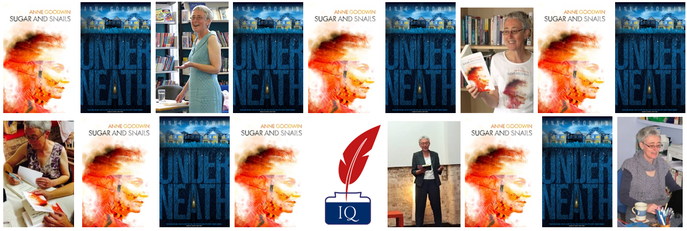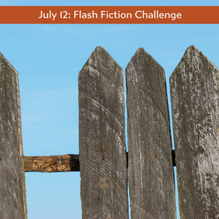| I sometimes wonder if there’s a fundamental incompatibility between my ambitions to improve as a writer and attract more readers, and my loyalty to my personal truth. Certainly the recent trend towards up lit seems at odds with my need to embrace both light and dark. And industry advice doesn’t always acknowledge the complexity of being human and that characters can be as motivated by loss and fear as by desire. |
As I understand it, and drawing on a recent post from Charli Mills, the hero’s journey derives from mythology and begins with a “call” away from the familiar to venture into the unknown. After facing challenges along the way, with help from some and hindrance from others, the hero enters the cave, the ultimate test of mental and physical prowess which seems to spell defeat. And yet it doesn’t: by conquering her demons, the hero is further empowered, returning home with the “elixir” of her transformation. The recipe for a great story, don’t you think?
I want to write page-turning fiction but something about this isn’t right for me. My reservations are threefold: the label of hero; the implication of choice; and the feel-good nature of the resolution.
As I mentioned in a previous post, the definition of hero implies the possession of exceptional courage, but I want to read and write about flawed human beings. Of course we can change the label and write about the person’s journey but it doesn’t have the same ring. I’m also interested in another part of my dictionary definition which refers to someone who is idealised for their courage and nobility by others. Sometimes it’s empowering when others praise qualities within us we haven’t fully recognised ourselves, but sometimes it’s extremely painful. Calling someone brave or heroic can also be a way of distancing ourselves from their suffering and can be experienced by the person themselves as an instruction to carry on bearing the unbearable. There’s a risk, in creating heroes, of denying the darkness of some lives.
I feel this whenever I see child carers lauded in the media. Isn’t she wonderful, they say, failing to mention that no child should be caring for an adult except in the most limited of ways. I’m sure you have your own examples of people pushed into the hero position rather than taking it on by choice. I had similar reservations about ascribing heroism to the teenage narrators of The Shepherd’s Hut and Sal. In matters of physical or psychological survival, the choice isn’t between safety and adventure, but between fight, flight and appeasement – the latter usually entailing a negation of the self.
My third reservation relates to the resolution: does the hero necessarily end up in a better place? What structure do we need for stories of the grief that never goes away? Almost four years ago, I had a lot of support and interest in my post Good Grief for writers?, which included a quote about artists being “fundamentally inconsolable”, and that inconsolability being the position from which our best work derives. And it’s not only artists. I think many people can connect with such a sentiment if they’re led towards it in a nonthreatening way. It isn’t about wallowing in misery; it’s about being real. Those are the stories I want to write.
The Kleinian concept of manic reparation relates to achieving a pseudo-acceptance of adversity without going through the painful process of mourning. I’m fine! I’m saved! I’ve put all that trauma behind me! But it’s a brittle adaptation that can easily break down. Reparation proper entails acknowledging the damage, loss and guilt without succumbing to despair. For some people in some types of situations, the grief never goes away. We learn to live with it.
It’s personal too. Having worked for my elixir, I’m happy with my life. I could frame my story as a hero’s journey, but that would be to imply I had a choice. I reject the notion that the struggle was worth it. I like where I’ve got to, but I’d rather have had an easier journey even if the outcome wasn’t as good.
Is there a narrative structure that’s gripping as the hero’s journey that allows for these reservations? Am I arguing for a revised nomenclature; a stronger role for ambivalence and mourning; for a different type of journey altogether? At the moment, I don’t know, so if any of this makes sense to you, please share your thoughts.
| This week, Charli is asking for 99-word stories about broken fences. The hero’s journey is about mending those fences – or knocking down fences where they keep people apart. I suppose I’m saying I want to write about those fences that in the process of breaking leave splinters in our hands. Or broken fences that are imperfectly repaired. |
But, with hackles rising over Trump’s visit to the UK, and his humiliation of our Prime Minister compounding her Cabinet’s betrayal, I couldn’t resist a Friday the Thirteenth political story:
Some party! Guests hurled abuse across a bifurcating fence. But Theresa would get them dancing and use the wooden panels to erect a different fence. Strong and stable to keep the rabble out.
Sipping champagne, she waited for the guest of honour at the porticoed door. Behind her, the factions hollered, whacking each other with bits of broken fence. Theresa’s smile was equally wooden. Just high spirits, she’d tell the POTUS, when he finally arrived. Where was he?
She turned, flinching at the wreckage as Boris shook Donald’s hand. He’d certainly made an entrance, bulldozed through her precious fence.
























 RSS Feed
RSS Feed





















